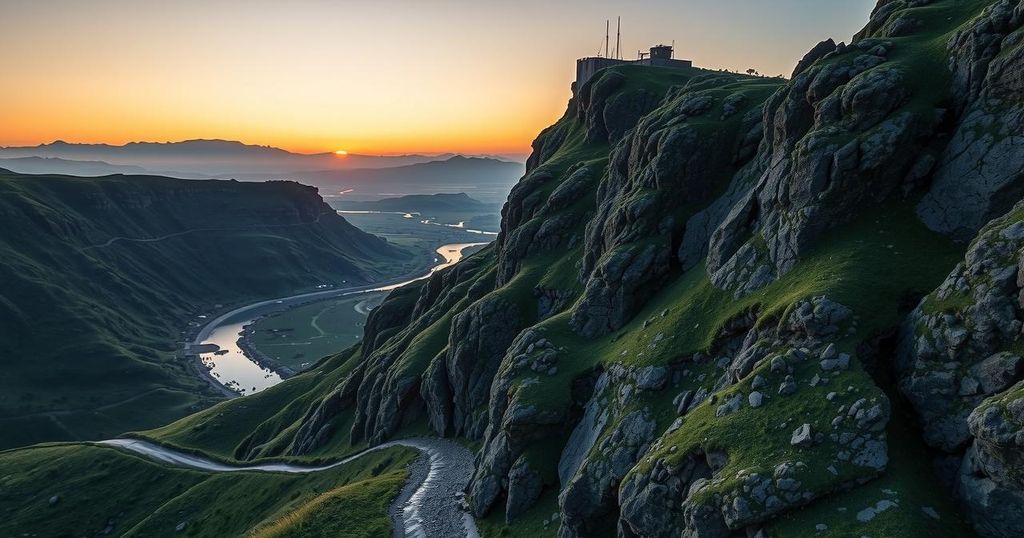The M23 group, backed by Rwanda, has pledged to advance towards Kinshasa after capturing Goma, escalating the ongoing conflict in the eastern DRC. Congolese President Tshisekedi vowed a coordinated military response. The humanitarian situation worsens as violence and displacement surge, prompting international calls for Rwanda’s withdrawal and potential sanctions. The crisis reflects long-standing issues of resource exploitation and regional turmoil.
The Rwanda-backed armed group M23 has announced its intention to advance toward Kinshasa, the capital of the Democratic Republic of Congo (DRC), following significant territorial gains in the conflict-ridden eastern region, particularly the capture of Goma, North Kivu’s capital. This development marks an alarming escalation in a longstanding conflict characterized by the involvement of multiple armed factions.
Despite Rwanda’s assertion that its primary goal is to eliminate forces associated with the 1994 genocide, it faces accusations of exploiting the area’s mineral wealth, which is essential for the global electronics industry. Corneille Nangaa, leader of M23, stated that the group would not vacate Goma until their grievances are addressed, emphasizing their commitment to restoring electricity and establishing humanitarian routes for displaced individuals.
On the state-level, Congolese President Felix Tshisekedi reaffirmed the government’s resolve to combat what he termed a terrorist threat, vowing a coordinated response against the M23 and its supporters. The United Nations expressed grave concern over credible reports of the group moving southward toward Bukavu and confirmed that local forces were seizing additional territories.
Regional actors such as Angola, the European Union, and the United States have urged Rwanda to withdraw its forces, amidst bilateral discussions aimed at de-escalation. President Kagame of Rwanda openly criticized President Tshisekedi’s leadership and denied M23’s affiliation with Rwanda, claiming they are Congolese. Belgium further suggested that the EU should contemplate imposing sanctions on Rwanda due to its involvement.
As the fighting has intensified, the humanitarian situation in the region has deteriorated, with reports of severe shortages of food and essential resources for residents. Displaced populations are now numbering in the hundreds of thousands, as local communities plead for urgent assistance amid ongoing violence and disruption.
The conflict boasts deep historical roots, with the DRC being rich in valuable minerals like gold and cobalt. Accusations persist against Rwanda regarding its military interventions being driven by economic interests in these resources, a claim which has been denied by the Rwandan government. The repercussions of this conflict continue to pose grave risks to regional stability and humanitarian conditions.
The current conflict in the eastern DRC involves various armed groups, with M23 being one of the most prominent. This area has a history of violence and instability, deeply intertwined with regional politics and resource exploitation. Rwanda’s involvement has drawn international scrutiny, particularly accusations of seeking control over valuable mineral resources like cobalt and coltan, crucial for the electronics industry. The ongoing clashes have not only increased regional tensions but have also led to significant humanitarian crises, displacing large populations and exacerbating food shortages.
The situation in the DRC remains precarious, with the M23 group continuing to threaten stability as it pushes towards Kinshasa. The international community is now calling for urgent diplomatic measures and action against the escalating violence. Furthermore, the humanitarian crisis demands immediate attention, as thousands face starvation and displacement due to the ongoing conflict. The intertwined issues of local governance, resource exploitation, and regional security illustrate the complexity of resolving this protracted conflict.
Original Source: www.kten.com






